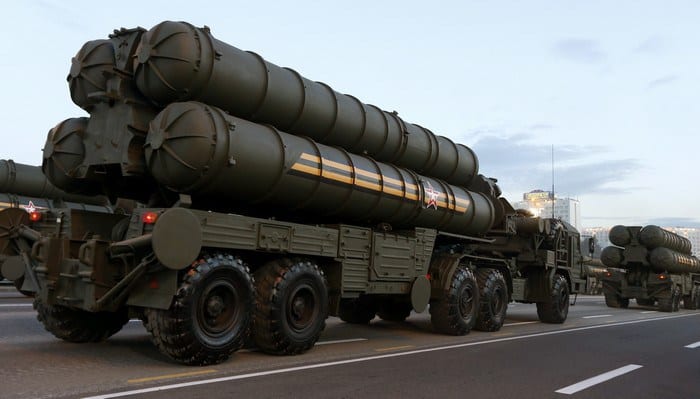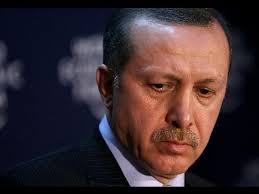By EMANUELE SCIMIA, Asia Times
Turkey’s announced acquisition of Russia’s S-400 long-range air and missile defense system has more to do with geopolitical posturing than military calculation.
Ankara is a long-standing member of the North Atlantic Treaty Organization, which has its own defense shield and could provide the kind of protection that the Turks are seeking. The aim of Turkish President Recep Tayyip Erdogan is to carve out an autonomous geopolitical role for his country in the Middle East.
The deal is said to be worth US$2.5 billion. Two S-400 batteries should be delivered before the end of next year, while another two should be constructed in Turkey later. The Russian defense system can hit aircraft, drones and cruise and ballistic missiles up to 400 kilometers away and features a radar that can track targets at 600km.
No other NATO country operates the S-400, so its deployment by the Turkish military will pose problems of interoperability for the Atlantic alliance.
Potential targets
In strict military terms, it is not clear why Ankara is buying the S-400. Currently, its sworn enemies are the Islamic State (ISIS) jihadist group in Syria and the Syrian Kurds. But neither can threaten Turkey with air sorties or missile attacks.
In 2015, the United States and Germany removed Patriot interceptors from southern Turkey. At the time, Washington and Berlin said the Patriot system was useless against jihadist militants, which had become the real challenge to Ankara’s security, given that the military potential of the forces loyal to Syrian President Bashar al-Assad had been degraded considerably.
At the moment, Iran is not a threat to Turkey either. In any case, NATO’s air and missile defense platform could protect Turkish soil from any Iranian missile strikes, provided they are not large-scale attacks. It is worth noting that a US ballistic-missile defense radar is stationed in Turkey, at the Kürecik base in the eastern province of Malatya.
Armenia is not a menace to Turkey either, despite the fact it is armed with the Russian-built Iskander short-range ballistic-missile system. Yerevan is a military ally of Moscow and its arsenal has been developed as a deterrent against neighboring Azerbaijan, with which is in dispute over the Nagorno-Karabakh region.
There remains the Assad regime’s air force as a possible target of Ankara’s future S-400 interceptors. The Syrian president is supported by the Kremlin, however. Despite their recent rapprochement, Erdogan and Russian President Vladimir Putin still have not found a common position over Assad. Indeed, since the civil war in Syria broke out in 2011, the Turkish president has been the Syrian strongman’s fiercest opponent.
Moscow and Ankara are seeking a negotiated solution to the Syria conflict. The Kremlin is now working as a buffer – both military and politically – between Ankara and the regime in Damascus. However, if Putin does not resolve differences with his Turkish counterpart on Assad, he will be left in an awkward position, having armed an enemy of his Syrian ally.
New Ottoman centrality
So, assuming that the Russian-Turkish entente holds for some time, Ankara’s interest in the S-400 must be read as an attempt to change its geopolitical collocation. Erdogan is at odds with the US for its backing of the Syrian Kurds, who are linked to the rebel PKK (Kurdistan Workers’ Party) movement in Turkey.
Erdogan has also repeatedly blasted Washington for its refusal to extradite Fethullah Gulen, the Muslim cleric he thinks is behind the failed coup attempt in Turkey in July 2016. The Turkish president’s crackdown on coup plotters has also drawn criticism from the European Union, further questioning Ankara’s possible accession to the EU grouping.
Fears that the US and EU are working to overthrow him have prompted Erdogan to distance Turkey from NATO allies. In this scenario, it is evident that the Turkish president is trying to make his country more independent from the Atlantic alliance. This operation does not coincide with a perfect realignment with Russia, because Turkey does not want to leave NATO, but aims to turn Ankara into an autonomous geopolitical pole, capable of playing its game vis-à-vis the US-EU bloc, the Moscow-Tehran axis, and even China.
This is Erdogan’s old dream of forging a new Ottoman centrality between Europe and Asia. However, given Turkey’s uncertain relations with Russia, and the question mark over the future of the Syrian conflict, the Turkish president’s gambit risks displeasing both NATO allies and possible new interlocutors.



















